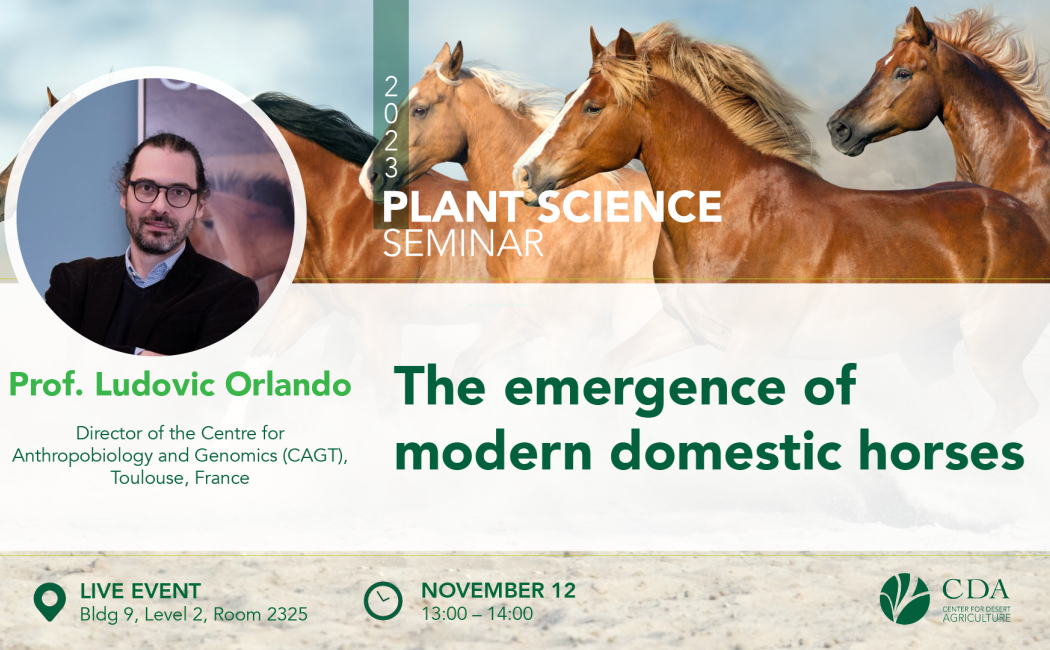Detail

The emergence of modern domestic horses
Speaker: Prof. Ludovic Orlando
Director of the Centre for Anthropobiology and Genomics (CAGT), Toulouse, France
-Hosted by Prof. Rod Wing
Join us in Building 9, Level 2, Room 2325
Abstract
The horse is one of the last mega-herbivores to have been domesticated but certainly represents the one that most impacted human history. It provided past societies with fast mobility, new ways to make war, and facilitated pastoralism and farming. Recent paleogenomic work revealed the original homeland of modern domestic horses in the steppes of the lower Don-Volga, approximately 4200 years ago. The management practices underlying the transformation and spread of what was a once local genetic lineage into a global resource remain, however, poorly understood. We generated new paleogenomic and functional data, more than doubling the number of ancient horse genomes ever characterized, to better characterize the demographic trajectory, mobility patterns and selection targets accompanying the emergence and further spread of modern domestic horses across Eurasia. Our work documents early selective breeding and sudden shifts in husbandry techniques facilitating the control of horse reproduction within the few centuries preceding the expansion of spoke-wheeled war chariots. The identification of similar features in the Botai assemblage provides further evidence for horse management of an independent horse genetic lineage in Eneolithic Central Asia.
About the speaker
Ludovic was born in 1977, the year the first DNA molecules were ever sequenced. He started his own research group in 2010 at the Centre for GeoGenetics, Univ of Copenhagen, Denmark, where he was appointed as a full Professor in ‘Molecular Archaeology’ until 2020. He became a CNRS research director in 2016. He founded the Centre for Anthropobiology and Genomics (CAGT) in 2020, and as acted as its director since. Amongst his early career achievements feature (1) the sequencing of the first Middle Pleistocene genome, (2) the characterization of the first ancient epigenome, and (3) the identification of the horse and donkey domestication homelands. His research has received multiple national and international funding, including from multiple Marie-Curie programmes, and two prestigious grants from the European Research Council (CoG PEGASUS, and SyG Horsepower). He was awarded the CNRS Silver Medal in 2023 « for the originality, quality, and importance of (his) work, which is recognised at national and international level. »